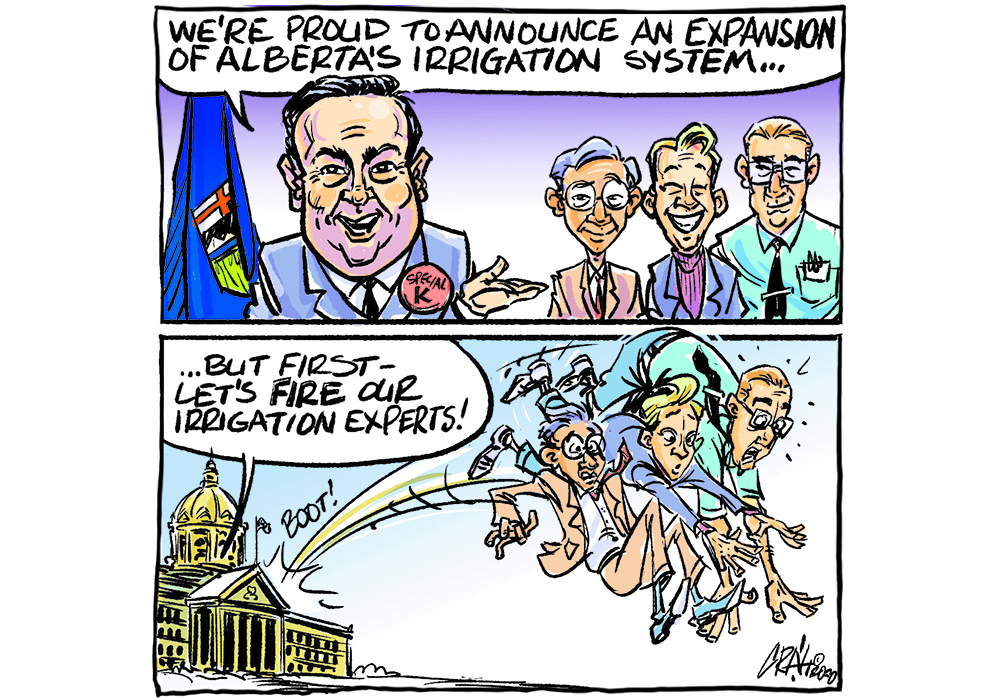Tough times in the energy economy have left Alberta’s government in a difficult position. Cuts to nearly every sector were inevitable, no matter what brand of politicians were running the show. But cuts to agriculture are hard to swallow.
Given the challenges for the economy, with low returns from mining, oil and gas and manufacturing, agriculture is one of its few bright spots.
The trouble is, gross domestic product from farming related endeavors is only about 10 percent of that typically yielded by energy and mining.
Read Also

Budget seen as fairly solid, but worrying cracks appear
The reaction from the agriculture industry to prime minister Mark Carney’s first budget handed down November 4th has been largely positive.
Rural Alberta has been the backbone of the new United Conservative Party, both with votes and donations. While the former can likely be counted on no matter what the legislative conditions, the latter might become harder to get if cuts to Alberta Agriculture go too deep.
Ironically, as one example, a federal-provincial COVID-19 recovery program with infrastructure projects that include a significant, $815 million investment in the irrigation system will now be short of bodies to assist its implementation due to the “realignment of priorities” for the Irrigation and Farm Water Branches of the agriculture department.
Provincial operations that help producers and other entrepreneurs develop made-at-home food processing and marketing are being eliminated from the work of government in the province. This might curtail development of Alberta-born value-added food products to a great extent, as competition in the food market is tough and startups often need extensive support to succeed.
Cuts to agricultural research and the subsequent extension of that information to producers by government staff will be buffered by a shift in investments to regional farmer and farm-organization run groups as well as universities and colleges. But overall there will be less spending in Alberta’s agricultural future and fewer farmers will hear about it.
Despite having an accomplished lineup of Albertans in agriculture on its interim board and staff, the new Results Driven Agriculture Research organization will have its work cut out for it. When it comes to getting consensus on where investments should be made with what remains of the province’s research funding, the process won’t be an easy one.
Even RDAR’s name, with its emphasis on “results”, back-handedly implying that Alberta Agriculture’s long record of research that directly benefited farmers wasn’t meeting their needs, has the smell of politicians looking to cover their tracks.
The RDAR undertaking suggests that producer-elected boards will do a better job than publicly elected politicians and career agricultural researchers and scientific administrators in choosing priorities and direction for taxpayer dollars. Will that be true? RDAR is tasked with proving it.
Alberta Agriculture may have been carrying more than its share of the research burden but its producers will be the losers in the long run if fewer public dollars are spent on their behalf.
Universities and colleges have their own agendas. Likely with provincial advice, their leadership will be calling the tune when it comes to research priorities for their new provincial money. Are they better suited to make decisions about publicly funded science and extension than government?
Reductions in the provincial budget have to be made but producers should consider whether they are taking deeper cuts than their share. Farming is the original renewable resource and knowledge makes that happen.
Karen Briere, Bruce Dyck, Barb Glen and Mike Raine collaborate in the writing of Western Producer editorials.















